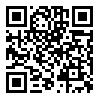مجله رویش روانشناسی از دادن گواهیهای کاغذی معذور است. لطفا تقاضا نکنید. همه گواهی ها در صفحه شخصی کاربران موجود است.
year 13, Issue 4 (summer 2024 2024)
Rooyesh 2024, 13(4): 183-192 |
Back to browse issues page
Download citation:
BibTeX | RIS | EndNote | Medlars | ProCite | Reference Manager | RefWorks
Send citation to:



BibTeX | RIS | EndNote | Medlars | ProCite | Reference Manager | RefWorks
Send citation to:
Ghaderi Z, Moeinan D. (2024). Presenting a prediction model of Internet addiction based on the brain-behavioral system with the mediation of cognitive flexibility in adolescents. Rooyesh. 13(4), 183-192.
URL: http://frooyesh.ir/article-1-4788-en.html
URL: http://frooyesh.ir/article-1-4788-en.html
1- M.A. student in personality psychology, Faculty of Humanities, Ashtian Branch, Islamic Azad University, Ashtian, Iran.
2- Instructor, Department of Psychology, Faculty of Humanities, Ashtian Branch, Islamic Azad University, Ashtian, Iran. ,davoodmoeinan@gmail.com
2- Instructor, Department of Psychology, Faculty of Humanities, Ashtian Branch, Islamic Azad University, Ashtian, Iran. ,
Abstract: (1773 Views)
The present study was conducted to present a prediction model of Internet addiction based on the brain-behavioral system with the mediation of cognitive flexibility in adolescents. The present study was a descriptive-correlation type of structural equation modeling. The statistical population of the present study consisted of all the male and female students of the second secondary level of Ashtian City in the academic year 2021-2022, of which 250 were selected using the available sampling method. Data were collected from Dennis et al's Cognitive Flexibility Questionnaire (2010) (CFI), Young's Internet Addiction Test (IAT) (1998), and Carver and White's Brain Behavioral System Scale (1994) (BIS/BAS). The obtained data were analyzed through correlation tests and structural equation modeling software. The results showed that there is a negative and significant relationship between the behavioral activation system and cognitive flexibility with Internet addiction (P<0.01). There is a positive and significant relationship between the behavioral inhibition system and cognitive flexibility with Internet addiction. has (P>0.01). Also, the modified model had a favorable fit. That is, the research model can explain the relationship between the variables. Also, the results indicated the confirmation of the mediating role of cognitive flexibility in the relationship between brain behavioral systems and Internet addiction in adolescents. P<0.01). By applying programs and interventions to increase cognitive flexibility, the tendency to become addicted to the Internet can be reduced.
Type of Article: Research |
Subject:
General Psychology
Received: 2023/08/18 | Accepted: 2023/09/29 | ePublished: 2024/06/30
Received: 2023/08/18 | Accepted: 2023/09/29 | ePublished: 2024/06/30
Send email to the article author
| Rights and permissions | |
 |
This work is licensed under a Creative Commons Attribution-NonCommercial 4.0 International License. |





